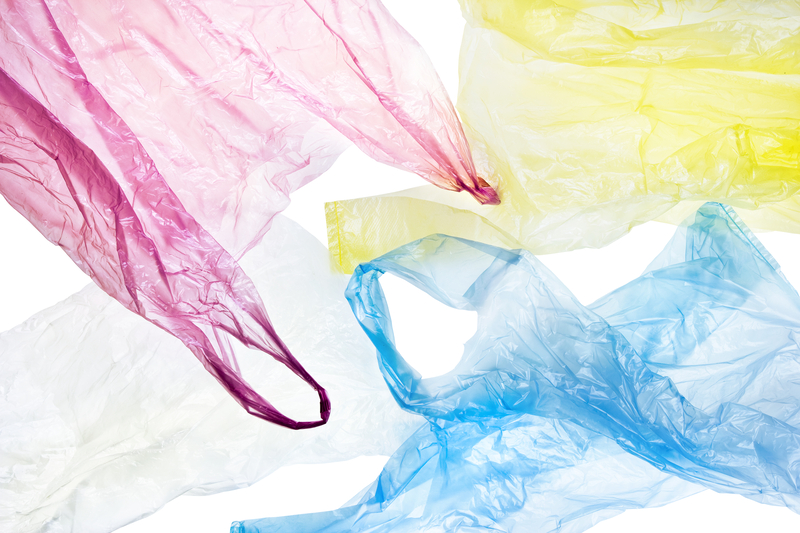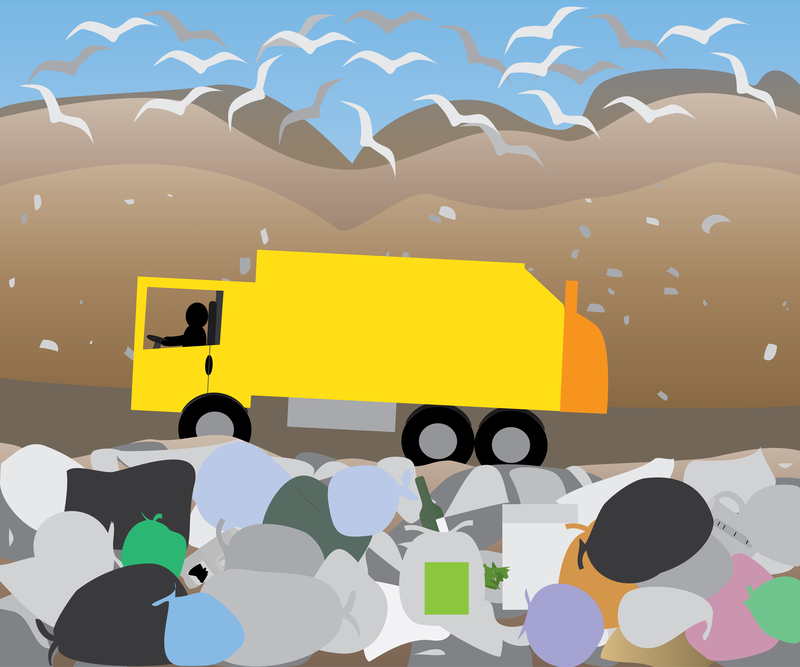Community Solutions for Safe PPE Waste Disposal
The COVID-19 pandemic highlighted a new environmental challenge: the safe disposal of personal protective equipment (PPE). Masks, gloves, gowns, and face shields have become everyday essentials globally, but how do we manage their waste safely and sustainably? This comprehensive guide explores innovative community-based PPE waste management solutions and their importance for environmental and public health.
Why Safe PPE Waste Disposal Matters
An enormous surge in improperly disposed PPE has been witnessed across the world since the onset of the pandemic. Single-use masks and gloves are now common litter, contaminating streets, waterways, and landfills. The improper disposal of PPE waste poses serious threats:
- Public Health Risk: Used PPE can harbor viruses, bacteria, and other pathogens, increasing the risk of disease transmission.
- Environmental Threat: Most PPE items are made from plastics that take hundreds of years to decompose, contributing to microplastic pollution.
- Waste Management Challenges: Sudden volume spikes overwhelm existing municipal waste systems, especially in densely populated areas.
Understanding the Types of PPE Waste
- Masks: Commonly made from polypropylene, a type of plastic
- Gloves: Often latex, nitrile, or vinyl, all non-biodegradable
- Gowns and Face Shields: Plastic-based disposable gowns or reusable alternatives
- Sanitizer Bottles & Wipes: Mixed material packaging and single-use plastics

Moving Towards Sustainable PPE Waste Solutions
Effective PPE waste management hinges on community-driven initiatives and public participation. Below are comprehensive solutions for communities looking to improve their PPE waste disposal practices.
1. Educational Campaigns and Public Awareness
- Informing Residents: Launch targeted campaigns about safe PPE disposal methods through flyers, social media, and local news. Proper communication ensures everyone knows the importance and steps for safe handling.
- Signage and Visual Cues: Posting clear signage in public places, bus stations, and retail shops helps remind citizens about the risks of improper PPE disposal and encourages responsible behavior.
- School Programs: Engage students to spread the message to families, amplifying impact across the community.
2. Specialized PPE Waste Bins and Collection Points
Designating specific, clearly marked PPE disposal points is a proactive step for communities. These can be conveniently placed in:
- Hospitals and clinics
- Grocery stores and shopping malls
- Bus stops and transit stations
- Schools and universities
- Community centers
Key features of effective collection points:
- Foot-operated lids to minimize contact
- Tamper-proof and regularly sanitized
- Detailed guidance on acceptable PPE items
3. Safe and Separate PPE Waste Collection
Segregation is essential for safe PPE waste management. Communities can adopt color-coded bin systems (e.g., blue bags for PPE) to differentiate infectious waste from regular household rubbish. This minimizes contamination across waste streams and protects sanitation workers.
- Training Waste Handlers: Ensure collection teams receive PPE and training to manage medical waste safely.
- Scheduled Pickups: Increase collection frequency to prevent overflow, especially in high-traffic areas.
4. Promote Reusable and Eco-Friendly Alternatives
While disposable PPE remains vital for certain settings, communities can advocate for reusable masks and biodegradable gloves where appropriate:
- Encourage Local Production: Foster small businesses to create cloth masks and biodegradable PPE, reducing reliance on single-use imports.
- Subsidize Sustainable Options: Municipalities could offer discounts or incentives for purchasing eco-friendly PPE, helping shift consumer behavior.
Case Study: Several neighborhoods in Europe distributed free, washable masks to residents, significantly reducing single-use PPE waste at the source.
5. Community-Led PPE Waste Drives
Organizing community PPE waste collection events not only clears local litter but builds awareness. Collaborate with local NGOs, youth groups, and environmental organizations to:
- Collect and responsibly dispose of PPE from public spaces
- Distribute informational materials regarding safe handling and disposal
- Recognize or reward volunteers, encouraging continued engagement
6. Supporting Innovation and Research
Community support for startups and researchers developing PPE recycling and upcycling solutions can have long-term environmental benefits. Examples include:
- Transforming used masks into building materials
- Developing low-temperature sterilization for PPE reuse
- Using collected plastic from masks for road construction
Tip: A few communities have partnered with universities to pilot mobile PPE recycling units, turning waste into benches, tiles, or even fuel.
Guidelines and Best Practices for Households
Safe Disposal Steps at Home
- Do not litter PPE. Always place used PPE in a sealed bag before disposal.
- Segregate from regular waste. Keep a dedicated bin or bag for masks, gloves, and disinfectant wipes.
- Seal and label. Clearly mark the bag for PPE to assist waste handlers.
- Wash hands. Immediately clean your hands after handling and disposing of PPE.
What Not to Do
- Do not flush PPE items down the toilet. This causes blockages and contaminate water systems.
- Do not burn PPE waste at home. Burning releases toxic fumes and is unsafe.
- Do not leave masks and gloves in outdoor bins without sealing.
Simple Steps For PPE Waste Reduction
- Switch to reusable, washable masks where and when safe
- Purchase PPE made from biodegradable materials
- Minimize use of unnecessary single-use PPE
Municipal and Policy-Level Community Solutions
1. Enacting Local PPE Waste Disposal Regulations
Local governments should update waste policies to address PPE. Key policy considerations include:
- Mandating separated PPE waste streams for households and businesses
- Fines or penalties for improper or hazardous disposal
- Guidelines for businesses on providing PPE waste bins for employees and customers
2. Working with Waste Management Companies
Municipalities can partner with professional waste disposal companies that provide specialized processing for hazardous and medical waste, ensuring safe transportation and treatment of used PPE.
- Provide training and protective equipment to waste workers
- Upgrade facilities for increased PPE volume
- Develop contingency plans for pandemic surges
3. Data Collection and Waste Auditing
Establishing a system to monitor and report PPE waste streams helps communities track disposal habits, identify gaps, and set targets for improvement. Data-driven insights can inform budgets, resource allocation, and policy adjustments.
4. Supporting Local Innovation and Employment
Community solutions for PPE waste aren't just about disposal -- they also provide an opportunity for economic growth. By supporting local businesses that develop biodegradable PPE, manage recycling drives, or innovate in PPE waste management, communities can create new jobs and foster eco-friendly entrepreneurship.
Innovative and Inspiring Examples from Around the World
Philippines: Eco-Bricks from PPE
A community-driven project in Manila collects single-use PPE, sterilizes it, and shreds the material. The shredded PPE is then mixed with cement to create durable bricks for low-cost housing projects.
United Kingdom: Mask Recycling Programs
Several councils have piloted mask recycling bins in schools and shopping centers. The collected PPE is processed by specialists and turned into plastic pellets for manufacturing benches and road materials.
Nigeria: Youth-Led PPE Collection Initiatives
In Lagos, youth groups have collaborated with health agencies to organize PPE waste pick-ups, educating local communities and keeping neighborhoods clean while preventing disease spread.
The Long-Term Impact of Safe PPE Waste Disposal
Effective PPE waste solutions go beyond pandemic times. Developing habits and infrastructure for safe, responsible disposal protects both public health and the planet. Communities that tackle PPE waste proactively also build resilience for future emergencies and develop civic pride through collective action.
- Cleaner neighborhoods and public spaces
- Lower risk of disease transmission
- Reduced environmental pollution and healthier ecosystems
- Increased environmental awareness and community solidarity

Taking Action: How Can You Get Involved?
Everyone has a role to play in PPE waste management:
- Support local PPE waste initiatives and clean-up events.
- Educate family, friends, and neighbors about safe PPE disposal.
- Advocate for innovative PPE recycling projects in your community.
- Opt for reusable or biodegradable PPE when able.
Remember, a safer, cleaner future is a shared responsibility. Your actions today contribute to long-lasting positive change for your community and the environment.
Conclusion: Building a Culture of Safe PPE Waste Disposal
Community solutions for safe PPE waste disposal are most effective when driven by awareness, infrastructure, innovation, and policy. By working together and supporting sustainable practices, communities can combat PPE pollution, safeguard public health, and set an example for environmental stewardship worldwide. Be part of the solution -- adopt responsible PPE waste practices and inspire others to follow suit.
Are you interested in launching a community PPE waste initiative? Share your ideas or local success stories below and help promote safe, sustainable practices in your neighborhood.



